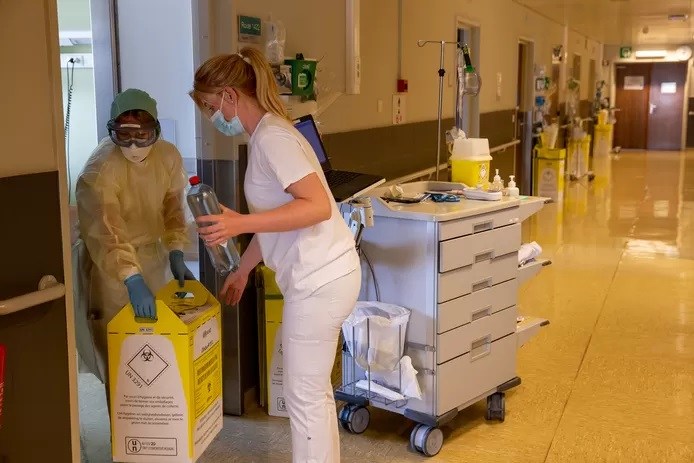The number of daily new cases of Covid-19 detected increased over the last seven days by 5%, according to the latest figures from the Sciensano Public Health Institute published on Saturday morning.
The increase, the first since March this year, brings the daily average to 378 diagnoses, just as the summer holiday season begins and people get ready to travel.
On Friday, a total of 271 people were in hospital as a result of the coronavirus (two fewer than on Wednesday) of whom 123 (-3) people were being treated in intensive care, and 83 (-2) were on a ventilator.
Between 26 June and 2 July, there was an average of 15.9 new hospital admissions per day due to the coronavirus, a 30% decrease compared to the previous reference period. The number of people currently in hospital as a result of the coronavirus remains below 300, the lowest it has been since September last year,
Meanwhile, the daily average of testing over the past week increased by 23% (an average of 47,127.4 tests were carried out) with a positivity rate of 1% (down by 0.3%).
Since the beginning of the pandemic, 1,086,508 cases of coronavirus infection have been diagnosed in Belgium.
During the same period, an average of 3.9 people died per day from the virus (down by 31% from the previous week), bringing the total to 25,185 deaths since the start of the pandemic in Belgium.
The incidence, which indicates the average number of new cases per day per 100,000 inhabitants, has dropped by 56% since the last 14-day period and now sits at 44.9.
The reproduction rate of the coronavirus in Belgium has again dropped down to 0.71 after briefly rising above 0.80 last week. While this number remains below 1, which it has for almost three months, it means that the epidemic is gradually slowing down.
As of Friday, 77.9% of the adult population in Belgium had received the first injection of a coronavirus vaccine. This figure equates to just over 7.25 million people.
Of these, just over 4 million people (44.1% of the adult population in Belgium) have received a second dose and are now considered fully protected.
As Sciensano has decided no longer to collect data from hospitals at weekends, we will not be reporting on the latest figures on Sunday or Monday.
The Brussels Times

